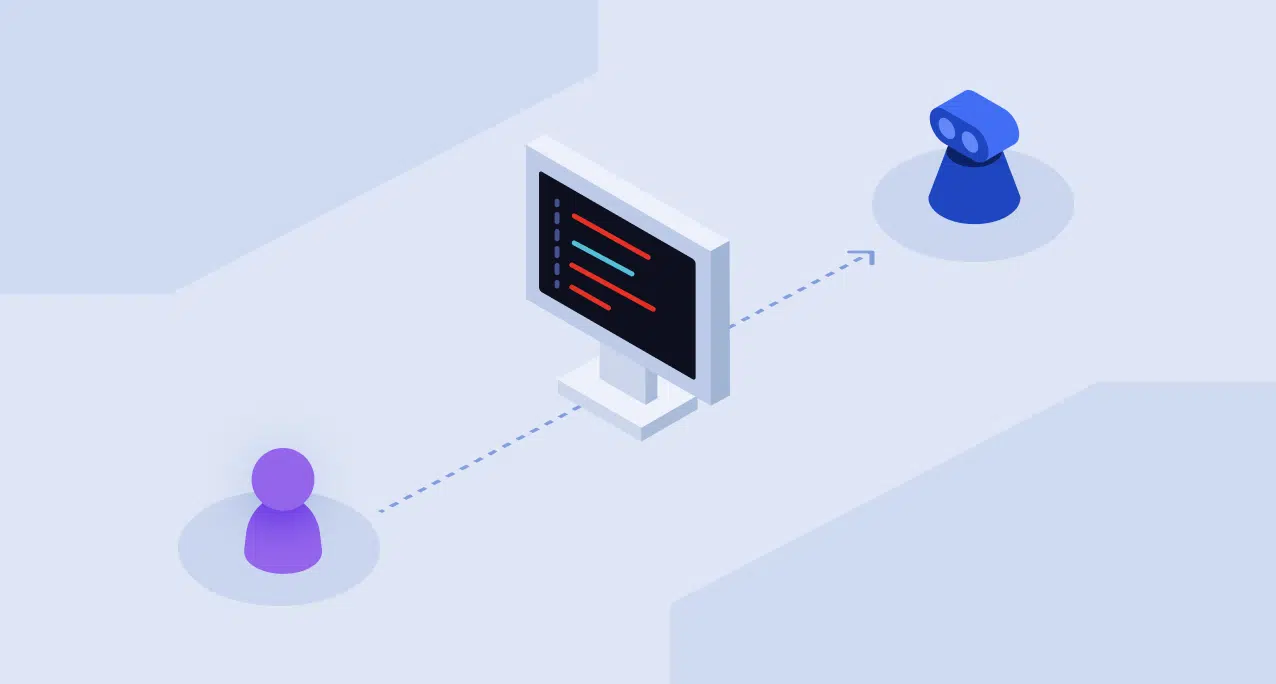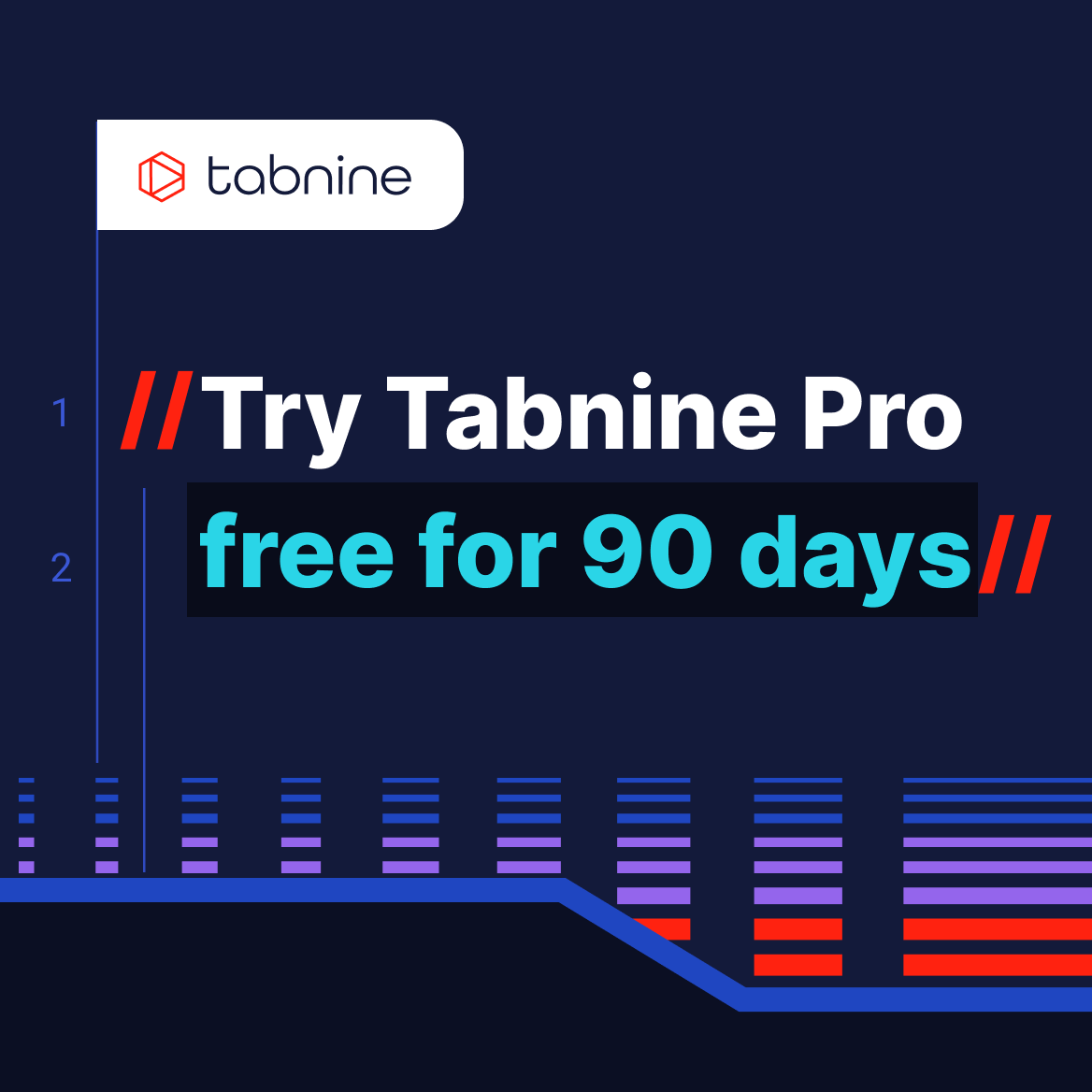What is generative AI?
Generative AI refers to artificial intelligence systems that can create content, including text, images, and code. These systems learn from large datasets to generate new outputs that resemble the learned information. Unlike traditional AI, which focuses on analysis and decision-making, generative AI is about creation of new content and artifacts that can be useful for humans.
This technology has rapidly evolved, with large language models (LLMs) like OpenAI’s GPT and Google’s Gemini leading the way. State-of-the-art LLMs have remarkable cognitive capabilities and are able to match or even surpass humans on many tasks. Generative AI’s ability to produce novel content has wide applications, from creative arts to technical fields like software development and testing.
This is part of a series of articles about AI coding tools.
How is generative AI being used in software development today?
While still an emerging technology, generative AI is already widely used in several development areas.
Code generation and completion
Generative AI streamlines coding by suggesting completions or generating code snippets based on brief descriptions. This reduces manual coding and speeds up development. It also enables rapid prototyping. Developers can input requirements and the AI generates a prototype, allowing for quick adjustments. AI tools understand programming languages and context, helping developers create code more efficiently.
Bug detection and correction
Generative AI aids in identifying and correcting errors in code. By learning from a large set of existing codebases, AI can analyze a function, entire program, or even an organization’s entire codebase, and detect anomalies or errors that human developers might miss. This immediate feedback ensures higher code quality and reliability and reduces debugging time. In addition to detecting bugs, AI systems can recommend fixes automatically.
Automated testing
Generative AI can analyze the structure and functionality of code to automatically generate test scenarios, including edge cases that human testers might not consider. AI coding assistants are able to automatically write unit tests, which represent a major burden for development teams. This speeds up the testing process but helps improve test coverage.
Software documentation generation
AI can automate many aspects of technical documentation. By analyzing code, it can generate comments and documentation, minimizing developers’ manual effort. This improves code maintainability and understandability and makes it easier to keep documentation aligned with code changes.
Personalized code learning and assistance
Generative AI tailors learning experiences for developers, offering personalized guidance and resources. It adapts to each developer’s skill level, providing relevant examples and exercises. AI also offers real-time assistance, suggesting improvements and teaching best practices. This boosts developer skills, encouraging continuous learning.
Related content: Read our guide to AI for software testing.
Will generative AI replace software developers?
Generative AI is a tool that can augment and enhance the software development process. It can automate repetitive tasks, suggest code improvements, generate documentation, and even help debug programs. However, the idea of it completely replacing human developers overlooks the nuanced, creative, and often highly contextual work that developers do.
While generative AI can generate code, suggest fixes, and automate testing, it lacks the ability to understand the deeper, unspoken requirements of a project. Human developers can interpret and navigate the needs of stakeholders and adapt to changing requirements. These aspects of development require empathy and foresight, which AI, as of now, does not possess.
In addition to writing code, software development is about creating solutions that are viable, sustainable, and ethical. Developers play a crucial role in ensuring that software meets human standards, is secure, and does not inadvertently perpetuate biases. While AI can be trained to recognize patterns of bias or security flaws, human judgment is still required.
Human developers are capable of learning, adapting, and innovating in ways that AI, which depends on existing data and algorithms, cannot. The creativity and innovation that humans bring to software development are irreplaceable. However, generative AI will likely change the nature of software development, with repetitive and clearly definable tasks being automated.
What are the potential concerns about using AI in software development?
There are several issues that developers and organizations must consider regarding the use of generative AI to augment coding practices.
Security
Generative AI tools in software development must adhere to strict security and compliance guidelines, which can be challenging. AI-generated code might inadvertently introduce security vulnerabilities if not properly vetted. An AI system trained on publicly available code might replicate patterns that include known vulnerabilities.
License compliance
It is important to ensure that AI tools provide code that does not introduce license compliance issues. Code generated by AI tools could potentially be subject to commercial licenses or restrictive open source licenses, raising legal issues if it is used in commercial software.
Data privacy and isolation
AI models trained on large datasets may accidentally leak or misuse sensitive information, particularly when handling proprietary or confidential data. Ensuring that AI systems only access appropriate datasets and that they isolate and protect data is critical to maintaining privacy and trust, especially in industries like finance or healthcare where data sensitivity is important.
Learn more in our detailed guide to AI code refactoring.
4 ways AI will change the role of software engineers
The growing role of AI in coding will likely affect the work of software developers and engineers in several ways.
1. Shift to architecting and problem-solving
As generative AI takes over more routine coding tasks, software developers and engineers will find their roles evolving toward higher-level problem-solving and system architecture design. This shift means that developers will spend less time writing boilerplate code and more time designing systems that meet complex user needs.
Developers will become architects of solutions, focusing on how different components of a project fit together and optimizing for efficiency, scalability, and maintainability. This evolution will require a deeper understanding of both business and technology landscapes, as developers will need to anticipate future needs and design systems that can adapt to changing requirements.
2. Streamlining development cycles
The integration of AI in software development processes will lead to more streamlined and efficient development cycles. By automating tasks such as code generation, bug fixing, and testing, AI allows development teams to focus on critical aspects of project development, reducing the time to market for new software products.
This acceleration of the development cycle does not just mean faster releases; it also implies that teams can iterate more rapidly on feedback, enhancing the quality and relevance of software solutions. Consequently, developers will need to adapt to an even more fast-paced environment, focusing on rapid prototyping, continuous integration, and delivery models.
3. More time for innovation
With the mundane aspects of coding and testing increasingly handled by AI, developers will have more time to dedicate to innovation and exploration of new technologies. This opportunity to innovate is not just about creating new products but also about finding novel ways to solve existing problems.
In the past, senior roles like chief technology officers (CTOs) and software architects were mainly responsible for investigating new technologies and deriving value from them, while software engineers were mainly responsible for implementing existing technologies. In the future, it’s likely that software engineers will spend much more of their time exploring new technologies. Using generative AI, developers will rapidly prototype to identify new opportunities, or even propose new features and products.
4. Cross-disciplinary collaboration
As AI handles more of the technical load, the role of software developers will expand to involve more cross-disciplinary collaboration. Engineers will work closely with professionals from other fields — such as data science, design, and business — to create comprehensive solutions that address broader challenges. Generative AI will provide a common language that allows everyone, including nontechnical roles, to understand and contribute to codebases.
This collaboration will not only enhance the functionality and user experience of software products but also ensure they are ethically designed and socially responsible. The ability to communicate effectively across disciplines, understand diverse perspectives, and integrate this knowledge into software design will become key skills for developers in an AI-augmented future.
Learn more in our detailed guide to AI pair programming.
Tabnine: The AI coding assistant that you control
Tabnine is the AI code assistant that you control — helping development teams of every size use AI to accelerate and simplify the software development process without sacrificing privacy, security, or compliance. Tabnine boosts engineering velocity, code quality, and developer happiness by automating the coding workflow through AI tools customized to your team. Tabnine is trusted by more than 1,000,000 developers across thousands of organizations.
Unlike generic coding assistants, Tabnine is:
- Private: You choose where and how to deploy Tabnine, either as a secure SaaS offering or self-hosted on-premises or in a VPC. When using Tabnine’s proprietary models, we don’t store your data, don’t share it with any third party, and don’t use your data to train our models. This ensures complete privacy and maximizes control over your intellectual property.
- Personalized: Tabnine delivers an optimized experience for each developer and engineering team. You can increase Tabnine’s contextual awareness by making it aware of your environment — from a developer’s local IDE to the entire codebase — and receive highly personalized results for code completions, explanations, and documentation. Tabnine enterprise customers can further enrich the capability and quality of the output by creating a bespoke model that’s trained on their codebase.
- Protected: Tabnine is built with enterprise-grade security and compliance at its core. It’s trained exclusively on open source code with permissive licenses, ensuring that you’re never exposed to legal liability. We are transparent about the data that was used to train our proprietary model and share it with customers under NDA. Additionally, we offer an IP indemnification to enterprise users for peace of mind.
Boost developer productivity with AI-powered chat and code completions
Tabnine offers best-in-class AI code completion and an AI-powered chat that increases productivity and accelerates the entire software development lifecycle.
Here’s what you can do with Tabnine:
- Plan: Ask Tabnine general coding questions, learn how things work in your specific project, and get solutions and references relevant to your workspace.
- Create: Generate new code using natural language. As you continue coding, Tabnine provides inline code completions, offering real-time, context-aware suggestions that seamlessly blend with your coding style.
- Test: Ask Tabnine to create tests for a specific function or code in your project, and get back the actual test cases, implementation, and assertion. Tabnine can also use existing tests in your project and suggest tests that align with your project’s testing framework.
- Fix: Select code with an error and Tabnine will recommend fixes.
- Document: Generate documentation for specific sections of your code to enhance readability and make it easy for other team members to understand.
- Explain: Tabnine Chat can provide you with an explanation for a block of existing code, which is especially useful when reading a new codebase or reading legacy code in languages you don’t know as well.
- Maintain: In addition to writing new code, Tabnine can help you change the existing code by adding functionality, refactoring, or fixing specific code.
To learn more about Tabnine, check out our Docs or contact us to schedule a demo with a product expert. If you want to try it out for yourself today, sign up here to try it free for 90 days.




